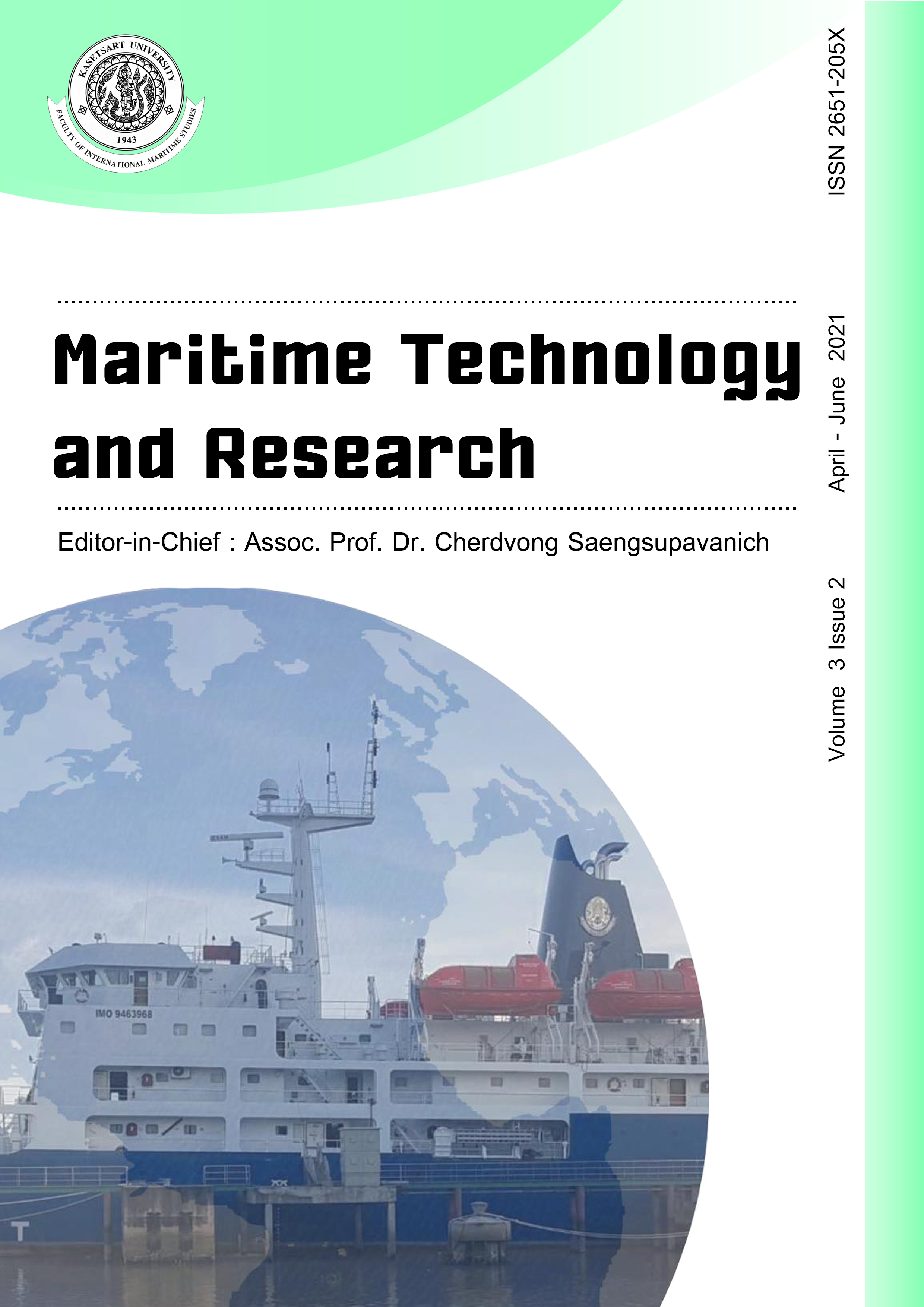Evaluating the implementation framework of the International Ship and Port Facility Security Code in the Republic of Azerbaijan
DOI:
https://doi.org/10.33175/mtr.2021.247419Keywords:
Maritime security, Republic of Azerbaijan, International Convention for the Safety of Life at Sea (SOLAS), International Ship and Port Facility Security Code (ISPS Code), Port Facility Security Plan (PFSP), Port Facility Security Officer (PFSO)Abstract
In the aftermath of the 9/11/2001 terrorist attacks in the USA via air transport vehicles (airplanes), security vulnerabilities also became a major concern for the shipping industry. Reacting rather quickly, the International Maritime Organization (IMO) streamlined efforts to respond to the need for a new global legal framework that addresses security risks and establishes mitigation measures to enhance security levels within the extended maritime transport system through the introduction of the International Ship and Port Facility Security Code (ISPS Code). Security issues became an inseparable part of the International Convention for the Safety of Life at Sea (SOLAS) with the incorporation of a new Chapter (XI-2: Special measures to enhance maritime security). The ISPS Code was adopted with the objective of establishing effective international cooperation between contracting governments, governmental agencies, national administrations, shipping companies, and port facilities for identifying, evaluating, and responding to security threats against ships and ports. Azerbaijan’s State Maritime Agency (SMA) is the authorized organization for the implementation of the provisions of SOLAS and the ISPS Code on behalf of the government. The main aim of this research was to evaluate the specific implementation framework of the ISPS Code, including associated regulations and guidelines; it also briefly examined the different security measures within the various port facilities in the Republic of Azerbaijan. This effort was based on 2 different approaches, in which both qualitative and quantitative research techniques were used. Data was collected through interviews with person responsible for the security of ships and the port facilities and from a survey of 115 participants directly involved in maritime security, such as seafarers, port facility guards, and port personnel, as well as visitors. Overall, the implementation of the ISPS Code in Azerbaijan has been successful, and the security level has been maintained at a high level; however, there are some areas in need of improvement.
References
Dalaklis, D. (2017). Safety and security in shipping operations. In Visvikis, I. D., & Panayides P. M. (Eds.). Shipping operations management (pp. 197-213). Springer.
Ibrahimov, R. (2010). Azerbaijan energy strategy and the importance of the diversification of exported transport routes. Journal of Qafqaz University, 29, 23-29.
International Maritime Organization. (1974). International convention for the safety of life at sea. London, UK.
International Maritime Organization. (2002). International ship and port facility security code. London, UK.
International Maritime Organization. (2008). Non-mandatory guidelines on security aspects of the operation of vessels which do not fall within the scope of SOLAS Chapter XI-2 and the ISPS Code (Resolution MSC.1/Circ.1283). London, UK.
International Maritime Organization. (2010). Guidelines on security-related training and familiarization for port facility personnel (MSC.1/Circ.1341). London, UK.
International Maritime Organization. (2012). Guide to maritime security and the ISPS code. London, UK.
International Maritime Organization. (2018). Global Integrated Shipping Information System (GISIS). Retrieved from https://gisis.imo.org/Public/ISPS/ReportPopupShell.aspx?Title= Declared+port+facilities&Country=&ID=ISPS_Report_LFACILITIES
International Maritime Organization. (2019). Maritime security. Retrieved from http://www.imo.org/en/OurWork/Security/Guide_to_Maritime_Security/Pages/Default.aspx
Mejia, J., & Quibranza, M. (2002). Defining maritime violence and maritime security. Malmö, Sweden: WMU Publications.
Nordfjeld, A., & Dalaklis, D. (2018). Assessing the need of implementing ISPS code instruments to Maritime Customs Units. Retrieved from https://www.researchgate.net/publication/ 329427158_Assessing_the_need_of_implementing_ISPS_Code_instruments_to_Maritime_Customs_Units
President of Russia. (2010). Agreement on cooperation in the field of security in the Caspian Sea. Retrieved from http://kremlin.ru/supplement/785
Republic of Azerbaijan. (2006). Merchant shipping code of the Republic of Azerbaijan. Baku, Azerbaijan.
Republic of Azerbaijan. (2015). The Code of Administrative Violations of the Republic of Azerbaijan. Baku, Azerbaijan.
The Cabinet of Ministers of the Republic of Azerbaijan. (2013). Statute on the inspections of the ships. Baku, Azerbaijan.
The Cabinet of Ministers of the Republic of Azerbaijan. (2014). Regulations on the security of the ports and port facilities. Baku, Azerbaijan.
The Cabinet of Ministers of the Republic of Azerbaijan. (2015). Regulations on the ensuring of the security during unlawful acts at the ports. Baku, Azerbaijan.
The Cabinet of Ministers of the Republic of Azerbaijan. (2015). Regulations on the navigation at the territorial waters of the Republic of Azerbaijan. Baku, Azerbaijan.
The Ministry of Justice of the Republic of Azerbaijan. (2019). Unique internet online base of normative legal acts. Retrieved from http://e-qanun.az
The President of the Republic of Azerbaijan. (1999). The law on the suppression of unlawful acts against the Terrorism. Baku, Azerbaijan.
The President of the Republic of Azerbaijan. (2014). The law on the sea ports. Baku, Azerbaijan.
The President of the Republic of Azerbaijan. (2018). Statute of the state maritime agency under the Ministry of the Transport, Communication and High Technologies of the Republic of Azerbaijan. Baku, Azerbaijan.
The SMA. (2016). Strategy for implementing IMO instruments 2016-2021. Baku, Azerbaijan.
World Atlas. (2019). Caspian sea: Map & Details. Retrieved from https://www.worldatlas.com/ aatlas/infopage/caspiansea.htm
World Port Source. (2019). Port of Baku. Retrieved from http://www.worldportsource.com/ports/ maps/AZE_Port_of_Baku_2192.php
Downloads
Published
Issue
Section
License
Copyright: CC BY-NC-ND 4.0








